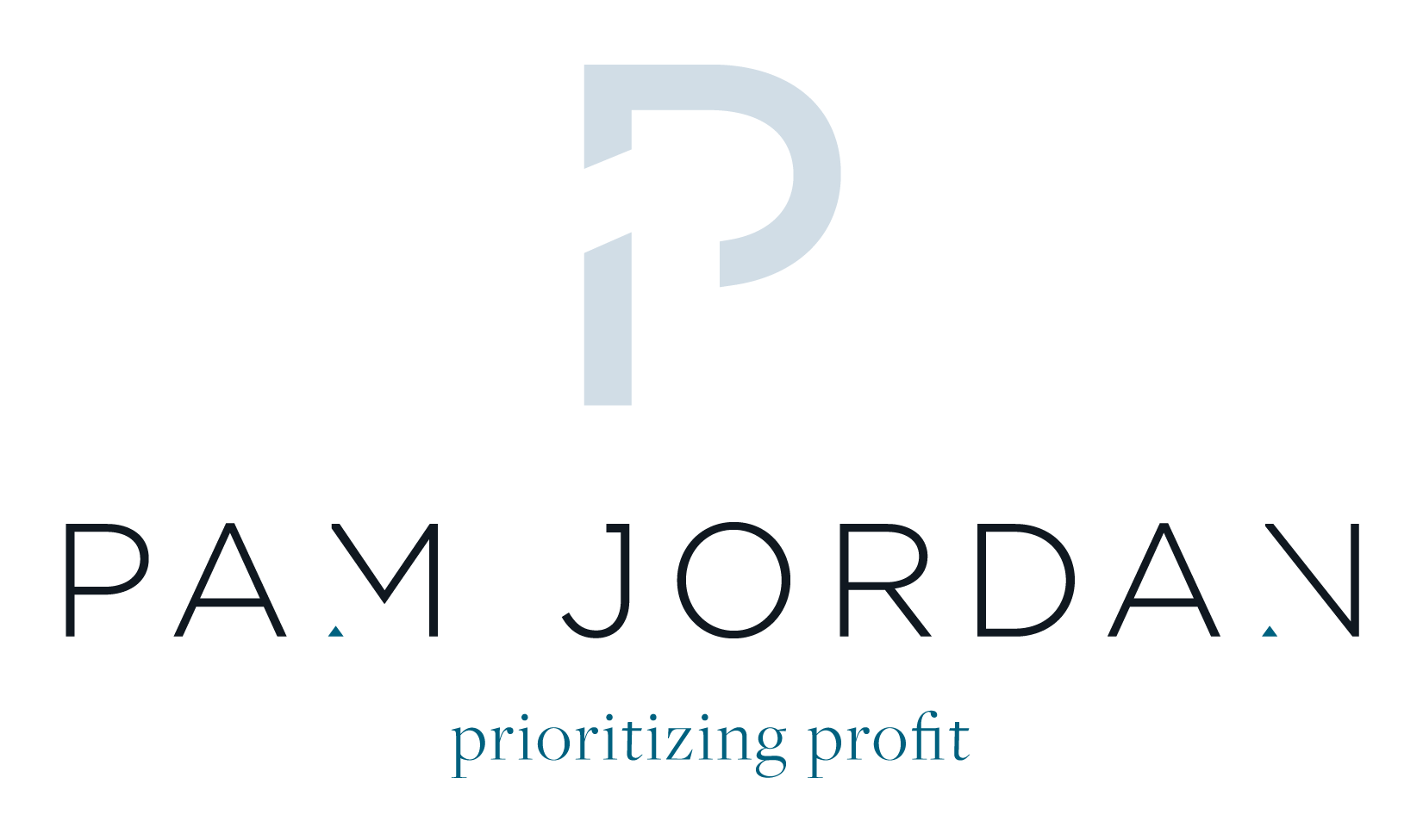Why Every Growing Business Needs a Fractional CFO
Scaling a business isn’t just about driving sales and adding new clients—it’s about making smart financial decisions that keep your company profitable and prepared for growth. In a recent episode of the Pivot to Profit Podcast, Pam Jordan shared why a fractional CFO can be one of the most valuable investments for founders and entrepreneurs.
From Bookkeeping to CFO: Understanding the Roles
Before diving into the value of a fractional CFO, Pam breaks down the financial roles in a business:
Bookkeeper – Handles daily transactions, categorizing money in and out, and reconciling accounts. They tell you what already happened.
Controller – Oversees accounts payable, receivable, and reporting. They manage your financial rearview mirror, ensuring accuracy.
CFO (Chief Financial Officer) – Acts as the co-pilot. Using your financial data, they provide the roadmap for future decisions like expansion, financing, and profitability strategies.
👉 In short: bookkeepers and controllers show you where you’ve been; a CFO shows you where you’re going.
Why Choose a Fractional CFO?
Hiring a full-time CFO costs $250,000+ annually (before benefits). For most businesses doing between $750K and $25M in revenue, that’s unrealistic. A fractional CFO delivers the same strategic expertise at a fraction of the cost.
Pam explains:
They provide forward-looking strategy instead of just historical reporting.
They bring proven systems, playbooks, and financial tools that adapt to your company’s stage.
They act as a translator between your bookkeeper, tax preparer, banker, and leadership team.
The Real ROI of a Fractional CFO
Fractional CFOs don’t just organize numbers—they drive profit. Pam shares several client success stories:
Med Spa: Increased profitability by 14% in just 30 days through pricing adjustments and an expense audit.
Hair Salon: Boosted revenue by 25%, reduced overhead, and introduced compensation systems that aligned the team with company goals.
Seasonal Business: Created cash storage strategies that reduced layoffs from 10 employees to just two during the slow season.
On average, a CFO-led expense audit saves 2–7% of operating costs—immediate dollars back into the business that can be reinvested in growth.
Key Services a Fractional CFO Provides
Pricing Strategy: Most owners undercharge. CFOs calculate break-even points, direct costs, and overhead to set profitable rates.
Cash Flow Management: Forecasting seasonal dips and ensuring you have reserves to cover payroll, taxes, and expansion.
Financing Support: Negotiating better loan terms and preparing financials for banks and investors.
Exit Planning: Increasing profitability before a sale to boost valuation—or sometimes making staying the more profitable choice.
KPI Development: Helping owners focus only on the most important numbers, not endless spreadsheets.
When Is the Right Time to Bring in a CFO?
Pam recommends that once a business hits $750K in annual revenue, it’s time to consider CFO support. At that stage:
You can’t rely solely on gut instincts or bookkeeping reports.
Growth creates complexity that requires financial strategy.
Missed opportunities or mismanaged expenses could cost hundreds of thousands in profit.
As Pam says: “The best time to hire a CFO was yesterday. The second-best time is today.”
The Bigger Picture: Profit Equals Freedom
At the end of the day, having a fractional CFO isn’t about spreadsheets—it’s about freedom. When you know your numbers, you can:
Confidently hire the right people.
Invest in marketing without fear.
Pay yourself well and on time.
Sleep at night knowing you’re building wealth, not just revenue.
Pam closes with this reminder:
“It’s not what you make that matters—it’s what you keep.”
👉 Want to learn more about how a fractional CFO can help your business scale with clarity and confidence? Visit pamjordan.com to schedule a consultation.

